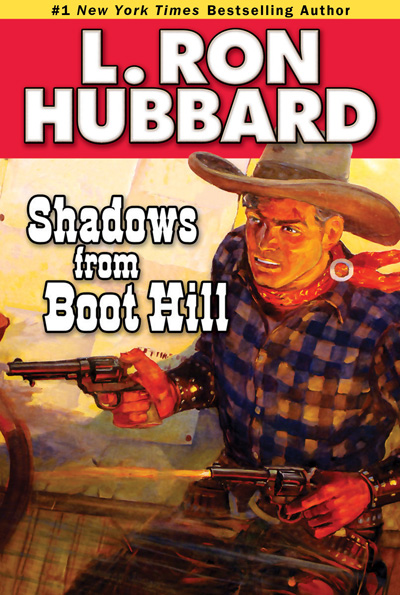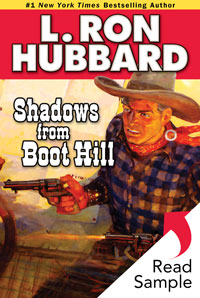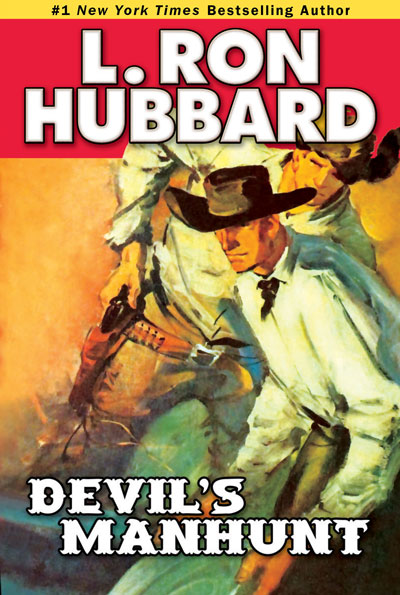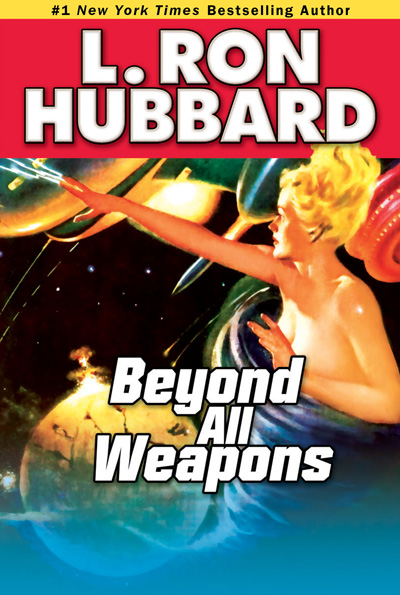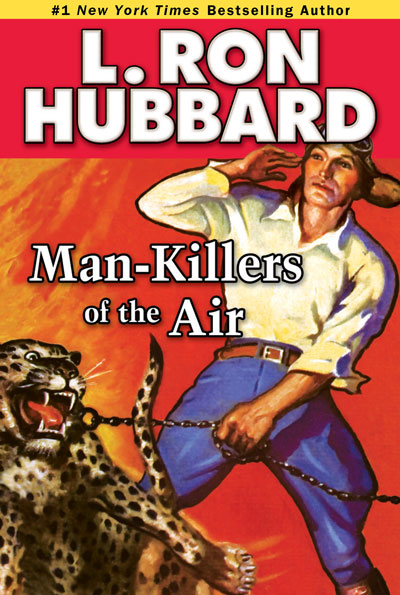Shadows from Boot Hill Glossary
Stories from the Golden Age reflect the words and expressions used in the 1930s and 1940s, adding unique flavor and authenticity to the tales. While a character’s speech may often reflect regional origins, it also can convey attitudes common in the day. So that readers can better grasp such cultural and historical terms, uncommon words or expressions of the era, the following glossary has been provided.
a-gawpin’: gawping; looking with amazement; looking stupidly.
alkali: a powdery white mineral that salts the ground in many low places in the West. It whitens the ground where water has risen to the surface and gone back down.
avarice: extreme greed for wealth or material gain.
bandoliers: broad belts worn over the shoulder by soldiers and having a number of small loops or pockets, for holding cartridges.
barrelhead, cash on the: money that is paid immediately when something is bought.
batwings: long chaps (leather leggings the cowboy wears to protect his legs) with big flaps of leather. They usually fasten with rings and snaps.
bead on, drew his: took careful aim with a gun. This term alludes to the bead, a small metal knob on a firearm used as a front sight.
Billy the Kid: (1859–1881) a nineteenth-century American frontier outlaw and gunman, reputed to have killed twenty-one men, one for each year of his life.
bonanza: in mining, a rich mine or vein of silver or gold; anything that is a mine of wealth or yields a large income.
boot: saddle boot; a close-fitting covering or case for a gun or other weapon that straps to a saddle.
Boot Hill: a cemetery in a settlement on the US frontier, especially one for gunfighters killed in action. It was given its name because most of its early occupants died with their boots on.
border shift: the throwing of a gun from one hand to the other, catching, cocking and, if need be, firing it without seeming to pause.
bowser: a gun.
bucking the tiger: the card game faro in which players lay wagers on the top card of the dealer’s pack. Some early faro cards and layouts also displayed a portrait of a Bengal tiger, inspiring the term “bucking the tiger” to describe playing the game. In later years, a framed tiger portrait hanging outside a gaming house announced the presence of a faro game within.
bucks: fellows; men.
bulldog: a short-barreled, large-caliber revolver or pistol.
cantle: the raised back part of a saddle for a horse.
carbine: a short rifle used in the cavalry.
Colt: a single-action, six-shot cylinder revolver, most commonly available in .45- or .44-caliber versions. It was first manufactured in 1873 for the Army by the Colt Firearms Company, the armory founded by American inventor Samuel Colt (1814–1862) who revolutionized the firearms industry with the invention of the revolver. The Colt, also known as the Peacemaker, was also made available to civilians. As a reliable, inexpensive and popular handgun among cowboys, it became known as the “cowboy’s gun” and a symbol of the Old West.
consarnit: damn it; confound it.
cyanide: an extremely poisonous compound. It is used in mining as a method of extracting gold and other metals from raw ore. Cyanide is applied to the ore, where it bonds with microscopic flecks of gold that are then recovered from the cyanide solution.
deal table: a table made of fir or pine.
Derringer: a pocket-sized, short-barreled, large-caliber pistol. Named for the US gunsmith Henry Deringer (1786–1868), who designed it.
desert bag: a type of canteen made out of tightly woven canvas that allows the bag to sweat. Evaporation helps to keep the water in the bag cooler when traveling in hot climates.
’dobe: short for adobe; a building constructed with sun-dried bricks made from clay.
dodgers: small handbills; small printed notices, advertisements or announcements, usually distributed by hand.
dons: Spanish gentlemen or aristocrats.
double eagles: gold coins of the US with a denomination of twenty dollars. They were first minted in 1849. In 1850 regular production began and continued until 1933. Prior to 1850, eagles with a denomination of ten dollars were the largest denomination of US coin. Ten-dollar eagles were produced beginning in 1795 and since the twenty-dollar gold piece had twice the value of the eagle, these coins were designated “double eagles.”
drill: shoot.
dry-gulch: an ambush; kill.
fall guy: an easy victim.
false-fronts: façades falsifying the size, finish or importance of buildings.
fanning: firing a series of shots (from a single-action revolver) by holding the trigger back and successively striking the hammer to the rear with the free hand.
faro: a gambling game played with cards and popular in the American West of the nineteenth century. In faro, the players bet on the order in which the cards will be turned over by the dealer. The cards were kept in a dealing box to keep track of the play.
federalistas: (Spanish) supporters of the US government, especially in the early years of the country.
fit: fought.
forked: mounted.
free-milling: said of certain ores that can be reduced by crushing and treating with mercury, without roasting or other chemical treatment.
galoot: a worthless fellow.
Gehenna: Hell; a valley to the southwest of Jerusalem used for burning the corpses of criminals and animals, and later refuse of any sort. It became an example of the infernal regions.
gink: a fellow.
G-men: government men; agents of the Federal Bureau of Investigation.
gook: anyone who is offensive to others because of stupidity, coarseness, etc.
hard by: in close proximity to; near.
Henry: the first rifle to use a cartridge with a metallic casing rather than the undependable, self-contained powder, ball and primer of previous rifles. It was named after B. Tyler Henry, who designed the rifle and the cartridge.
hie: to go quickly; hasten.
hog leg: another name for the popular Colt revolver also known as the Peacemaker.
hombre: a man, especially in the Southwest. Sometimes it implies a rough fellow, a tough; often it means a real man.
hoss: horse.
hostler: a person who takes care of horses, especially at an inn.
larrup: 1. to beat, flog or thrash, said of a horse to make it go faster. 2. to strike; to thrash.
light out: to leave quickly; depart hurriedly.
livery stable: a stable that accommodates and looks after horses for their owners.
locoweed: any of a number of plants widespread in the mountains of the Western US that make livestock act crazy when they eat them.
lucifer: a match.
Martini-Henry: a breech-loaded .45-caliber rifle adopted in 1871 as the standard British service weapon, named after its inventors.
Matagorda: a county in southern Texas.
more on the powder: the state of being quicker on the draw; a greater ability to shoot fast.
mow: haymow; the upper floor of a barn or stable used for storing hay.
mule car: a cart pulled by a small locomotive (steam engine) in a coal yard or industrial site.
muzzleloader: a firearm that is loaded through the muzzle.
oncet: once.
Overland: Overland Stage; stagecoach line in the mid-nineteenth century that transported mail and passengers.
oxide ore: mineralized rock in which some of the original minerals have been oxidized. Oxidation tends to make the ore more porous; that facilitates the flow of solutions into the rock. This effect is particularly important for oxidized gold ore, as it permits more complete permeation of cyanide solutions so that minute particles of gold in the interior of the mineral grains can be readily dissolved.
palm, itching of his: “itchy palm”; a desire for money; greed.
Peacemaker: nickname for the single-action (that is, cocked by hand for each shot), six-shot Army model revolver first produced in 1873 by the Colt Firearms Company, the armory founded by Samuel Colt (1814–1862). The handgun of the Old West, it became the instrument of both lawmaker and lawbreaker during the last twenty-five years of the nineteenth century. It soon earned various names, such as “hog leg,” “Equalizer,” and “Judge Colt and his jury of six.”
Pinkerton: Pinkerton National Detective Agency, a private US security guard and detective agency established by Allan Pinkerton in 1850. Pinkerton’s agents performed services ranging from security guards to private military contracting work. They were also used as guards in coal, iron and lumber disputes, as well as the railroad strikes of 1877. During its height, the Pinkerton Detective Agency employed more agents than the US Army. The agency’s logo, an eye embellished with the words “We Never Sleep,” inspired the term “private eye.”
Prop.: Proprietor.
puncher: a hired hand who tends cattle and performs other duties on horseback.
quirt: a riding whip with a short handle and a braided leather lash.
right-of-way: the right to build and operate a railway line on land belonging to another, or the land so used.
saddle boot: a close-fitting covering or case for a gun or other weapon that straps to a saddle.
salted down: hit repeatedly with bullets.
salty: someone or something with a lot of experience.
Scheherazade: the female narrator of The Arabian Nights, who during one thousand and one adventurous nights saved her life by entertaining her husband, the king, with stories.
Sharps .44 buffalo rifle: a .44-caliber single-shot, lever-action rifle.
sidewinder: rattlesnake.
Spanish corral: a circular enclosure or pen made of a stone wall with a wooden gate on one side in which livestock were kept.
stamp mill: a machine that crushes ore.
steam donkey: a stationary steam engine.
tarnation: used to express anger or annoyance; euphemism for damnation.
thunderation: an exclamation of annoyance or surprise.
tintype: a photograph formed on a metal plate.
trim: to make ready or right by cutting or shortening; to prepare for the most efficient burning.
veintiuna: (Spanish) twenty-one, also called blackjack; a card game in which the winner is the player holding cards of a total value closest or equal to, but not more than, twenty-one points.
vigilantes: citizens banded together in the West as vigilance committees, without legal sanction and usually in the absence of effective law enforcement, to take action against men viewed as threats to life and property. The usual pattern of vigilance committees was to grab their enemies (guilty or not), stage a sort of trial and hang them. Their other enemies were then likely to get out of town.
voodoo: a religion practiced throughout Caribbean countries, especially Haiti, involving magic and communication with ancestors.
war sack: a cowboy’s bag for his personal possessions, plunder, cartridges, etc. Often made of canvas but sometimes just a flour or grain sack, it is usually tied behind the saddle.
Wild Bill Hickok: (1837–1876) a legendary figure in the American Old West. After fighting in the Union Army during the US Civil War, he became a famous Army scout and later a lawman and gunfighter.
Winchester: an early family of repeating rifles; a single-barreled rifle containing multiple rounds of ammunition. Manufactured by the Winchester Repeating Arms Company, it was widely used in the US during the latter half of the nineteenth century. The 1873 model is often called “the gun that won the West” for its immense popularity at that time, as well as its use in fictional Westerns.
witch doctor: a person who is believed to heal through magical powers.

